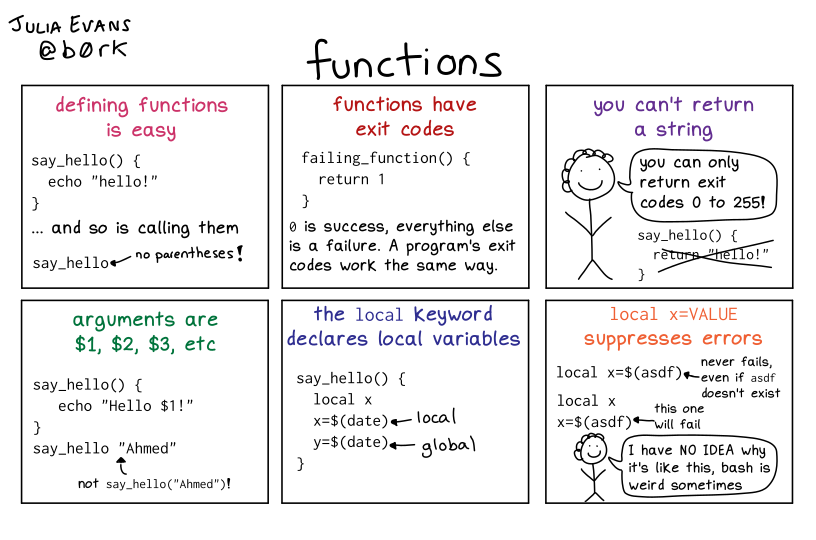
Here's a preview from my zine, Bite Size Bash! If you want to see more comics like this, sign up for my saturday comics newsletter or browse more comics!
 get the zine!
get the zine!
read the transcript!
panel 1: defining functions is easy
say_hello() {
echo "hello!"
}
and so is calling them:
say_hello
(no parentheses when calling a function!
panel 2: functions have exit codes
failing_function () {
return 1
}
0 is a success, everything else is a failure. A program’s exit codes work the same way – 0 is success, everything else is failure.
panel 3: you can’t return a string
you can only return an exit code from 0 to 255
panel 4: arguments are $1, $2, $3, etc
say_hello() {
echo "Hello, $1!"
}
say_hello "Ahmed"
the above code prints Hello, Ahmed!. Again, say_hello "Ahmed", not say_hello("Ahmed")
panel 5: The local keyword declares local variables
say_hello() {
local x
x=$(date) # this is a local variable
y=$(date) # this is a global variable
}
panel 6: local x=VALUE suppresses errors
this line never fails, even if asdf doesn’t exist:
local x=$(asdf)
but this will fail (as you would expect) – if you have set -e set, it’ll stop the program
local x
x=$(asdf) # this line will fail
person: “I really have NO IDEA why it’s like this, bash is weird sometimes”